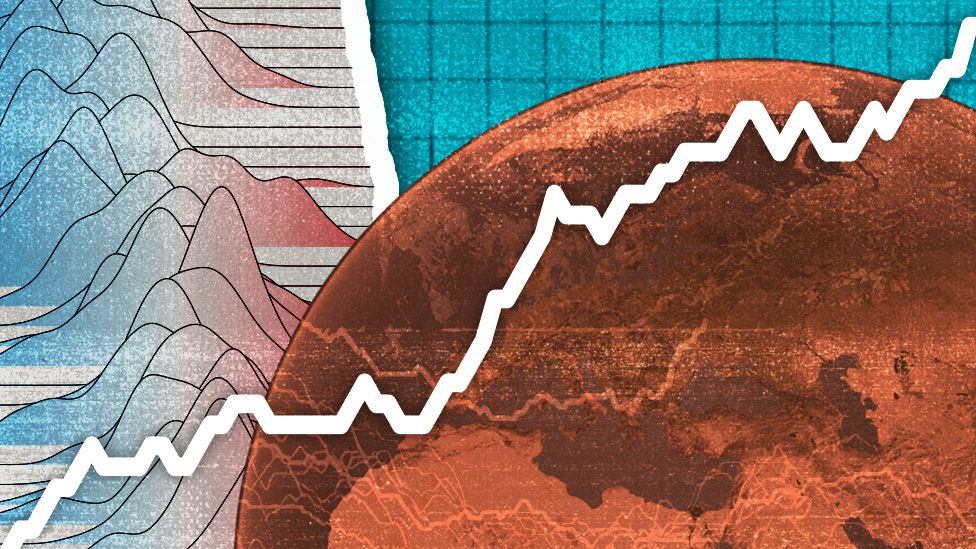-

-
-
Loading

Loading

The year 2023 has been confirmed as the warmest on record, driven by human-caused climate change and influenced by the natural El Niño weather event. According to the EU's climate service, last year was about 1.48°C warmer than the long-term average before human activities led to the burning of large amounts of fossil fuels. BBC analysis shows that almost every day since July 2023 has seen a new global air temperature high for that time of year, and sea surface temperatures have also reached unprecedented levels. The Met Office reported that the UK experienced its second warmest year on record in 2023. These global temperature records indicate that the world is getting closer to surpassing key international climate targets. Andrew Dessler, a professor of atmospheric science at Texas A&M University, remarked on the significance of the margin by which these records were broken, given that they are averages across the entire globe. While it is well-known that the world has become much warmer over the past century due to the release of greenhouse gases like carbon dioxide, no major science body predicted that 2023 would be the hottest year on record. This is because the Earth's climate behaves in a complex manner. Initially, only a few days in the first few months of the year broke air temperature records. However, in the second half of 2023, there was an extraordinary and almost continuous streak of daily temperature records. The exceptional warmth of 2023 is mainly attributed to the rapid transition to El Niño conditions, which has occurred alongside long-term human-caused warming. El Niño refers to a natural event where warmer surface waters in the East Pacific Ocean release additional heat into the atmosphere. However, the early onset of this El Niño phase and its impact on air temperatures have left many scientists uncertain about the exact reasons behind the record-breaking warmth. Another notable aspect of the 2023 warmth is that it has been experienced across the world. Almost every region has been warmer than the average levels from 1991-2020, a period already significantly warmer than the pre-industrial era. This global warmth has exacerbated extreme weather events, including heatwaves, wildfires, droughts, and floods, occurring on a larger scale and at unusual times. In addition to air temperatures, the world's ocean surface has also witnessed a continuous streak of record-breaking days since May 4, 2023. However, the behavior of the current El Niño makes it difficult to predict whether 2024 will be even warmer than 2023 and potentially surpass the 1.5°C warming threshold set in the Paris Agreement. Although breaching the threshold in a single year does not constitute a violation of the agreement, it highlights the concerning trajectory and the cumulative effects of global warming caused by human activities. The Copernicus Climate Change Service warns that each hot year brings the world closer to exceeding the 1.5°C target and witnessing the worst impacts of climate change. The recent COP28 climate summit resulted in an agreement among countries to address the main cause of rising temperatures, which is fossil fuel consumption. While the agreement's language may have been weaker than desired, there is hope that it will build on recent progress in renewable energy and electric vehicles. Despite the likely missing of the 1.5°C target, researchers emphasize that every fraction of a degree matters in mitigating the consequences of climate change.